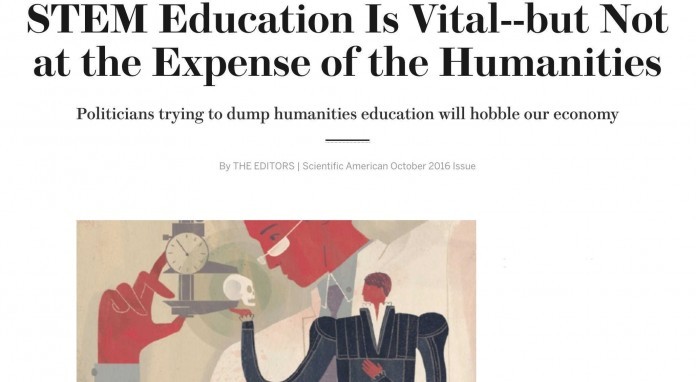V uredniškem komentarju oktobrske številke revije Scientific American so vzeli v bran humanistiko, ki jo kot neuporabno napadajo celo nekateri ameriški politiki.
Kentucky governor Matt Bevin wants students majoring in electrical engineering to receive state subsidies for their education but doesn’t want to support those who study subjects such as French literature. Bevin is not alone in trying to nudge higher education toward course work that promotes better future job prospects. Senator Marco Rubio of Florida, a former presidential candidate, put it bluntly last year by calling for more welders and fewer philosophers.
Promoting science and technology education to the exclusion of the humanities may seem like a good idea, but it is deeply misguided.Scientific American has always been an ardent supporter of teaching STEM: science, technology, engineering and mathematics. But studying the interaction of genes or engaging in a graduate-level project to develop software for self-driving cars should not edge out majoring in the classics or art history.
The need to teach both music theory and string theory is a necessity for the U.S. economy to continue as the preeminent leader in technological innovation. The unparalleled dynamism of Silicon Valley and Hollywood requires intimate ties that unite what scientist and novelist C. P. Snow called the “two cultures” of the arts and sciences.
Steve Jobs, who reigned for decades as a tech hero, was neither a coder nor a hardware engineer. He stood out among the tech elite because he brought an artistic sensibility to the redesign of clunky mobile phones and desktop computers. Jobs once declared: “It’s in Apple’s DNA that technology alone is not enough—that it’s technology married with liberal arts, married with the humanities, that yields us the result that makes our hearts sing.” …
Vir: STEM Education Is Vital–but Not at the Expense of the Humanities – Scientific American












